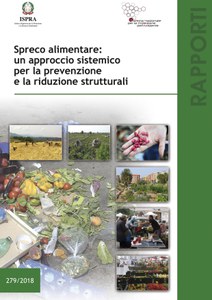Food wastage: a systemic approach for structural prevention and reduction
The reduction of food losses and waste are considered by the United Nations and many other international institutions as one of the fundamental ways to proceed for the protection of the environment and towards the human wellbeing. This is clearly stated by the UN Agenda 2030 for Sustainable Development. It is now clear that food waste (or wastage, to use a wide-ranging term) is a key driver, inter alia, of loss of biodiversity, accumulation of greenhouse gases into atmosphere, waste and pollution of water, soil and other resources. Based on the existing literature and data, with a survey on the main success stories, we provide an overview of the nexus between environmental issues and other aspects, such as food security and sovereignty, territorial development, bioeconomy.
The report comes to a proposal of systemic definition and highlights the critical extent and effects of food wastage, by providing extensive data and information on the magnitude of the phenomenon and the extent of environmental effects, at national, European and global scale. By determining the causes and structural constraints, it reveals different amounts of wastage associated with different structure of the food systems. Beyond the actions of recovering and recycling surpluses, the report underlines the urgency to focus more on upstream prevention of surpluses to reduce subsequent wastage and negative effects. Several prevention proposals are widely dealt and aimed at a complex strategy to increase ecological and social resilience by structurally transforming food systems.
Publication available only on-line
Download the report (pdf - 10 mb)

